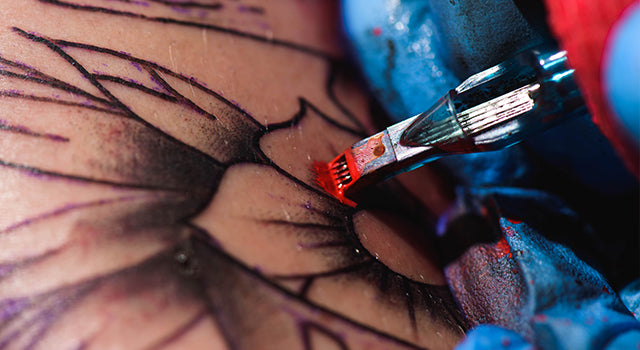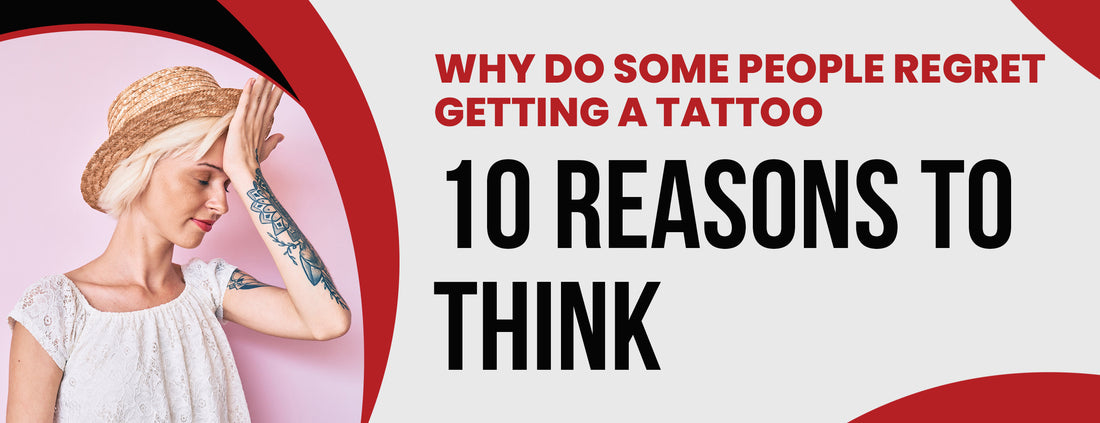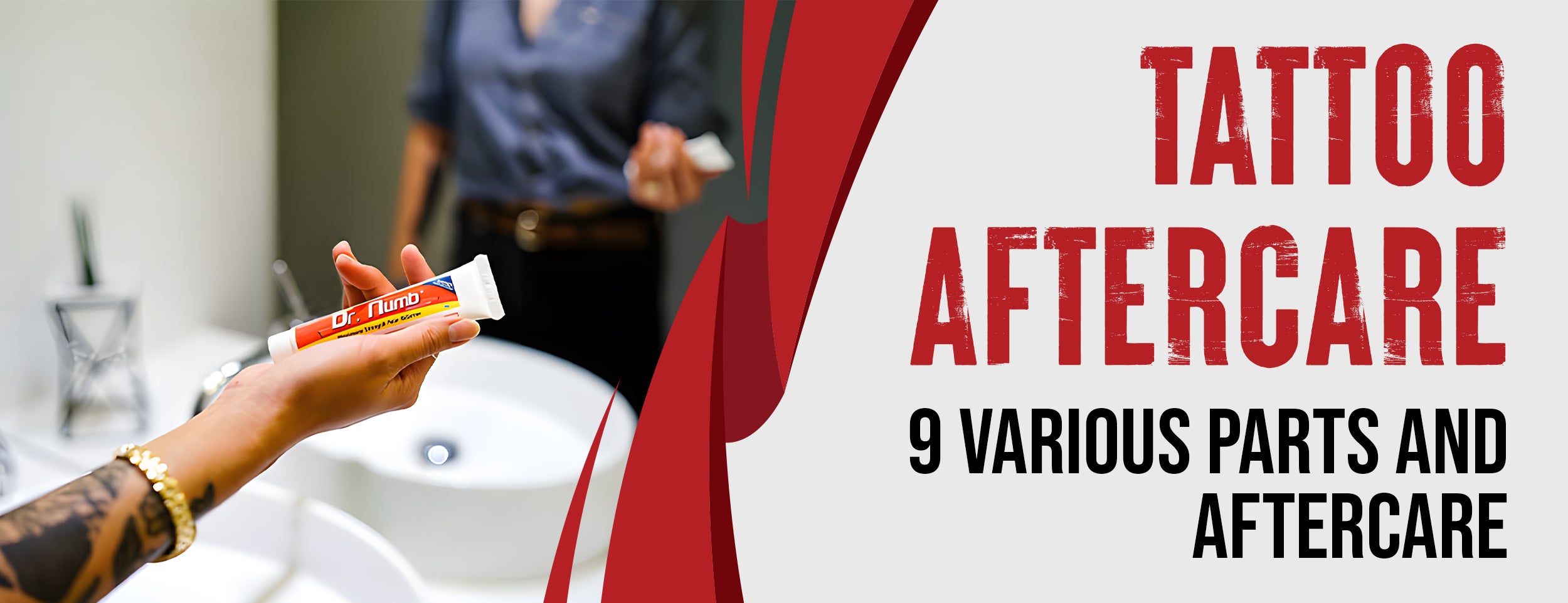Tattoo regret is on the rise in society, with a study in 2020 revealing that 30% of people regret getting a tattoo. What were once symbols of pride and individuality are now linked to feelings of shame and remorse.
The top reasons for tattoo regret are impulsiveness (35%), deep meaning (29%), and wanting to appear cool (18%). Thoughtful consideration reduces the likelihood of regret. Whether it's a misspelled word or an impulsive decision, tattoo regret is common.
In this blog post, we'll explore the various reasons why some people regret getting tattoos, the impact that tattoo regret can have, and, most importantly, how to reduce your chances of experiencing tattoo regret.
Why Do Some People Regret Getting a Tattoo: 10 Factors

Tattoo regret can be a complex and emotionally challenging experience for some individuals. It's essential to understand the various factors that can contribute to this regret, shedding light on why some people wish they hadn't gotten inked in the first place. We'll delve into the critical reasons behind tattoo regret, which include.
Lack of Proper Planning
One of the significant factors contributing to tattoo regret is the need for proper planning. Some people rush into the tattoo process without thinking. The following factors can cause tattoo regret:
- Impulsive Decision-Making: Deciding to get a tattoo impulsively without weighing the pros and cons can lead to regrets later.
- Tattoo Dissatisfaction: Failing to research and select the right tattoo artist or choosing a design unsuitable for their body can lead to dissatisfaction and regret.
Changes in Preferences or Lifestyle
As we progress through life, our personal preferences and lifestyles can change. For some individuals, what they thought would be an ideal tattoo at a particular point in life may no longer suit them. A variety of factors can cause tattoo regret:
- Changes in personal preferences or tastes.
- Changes in lifestyle or occupation.
Pre-tattoo Emotional State
The emotional state that an individual is in before getting a tattoo can significantly contribute to whether or not they end up regretting their decision. The following are some of the emotional states that can cause people to regret getting tattoos:
- Emotional distress.
- Being under the influence of drugs or alcohol.

Size Considerations
The size of the tattoo is another contributing factor to regret. Some individuals may choose a size that is too large or too small, leading to dissatisfaction with the outcome. Several factors contribute to tattoo regret:
- Choosing a size that is not proportionate to their body.
- Choosing a size that doesn't fit with their desired placement.
Symbol Choice and Meanings
The choice of symbols or the meaning behind the tattoo can also lead to regret. A few factors contribute to tattoo regret:
- Choosing a symbol that is culturally or traditionally insensitive.
- Choosing a symbol that has since lost its relevance or significance.
Negative Associations
Negative associations can also lead to tattoo regret. Some factors that cause tattoo regret are:
- Getting someone's name tattooed on their body that they are no longer with.
- Pop culture tattoos may fall out of fashion or lose appeal over time.
- Spelling mistakes or incorrect translations.
- Partner disapproval.
Career Considerations
A tattoo can have a significant impact on a person's career. The following factors also contribute:
- Employment requirements that prohibit visible tattoos.
- Tattoos on the head, neck, and hands may impact their job prospects.
Amateur Artists

Tattoo regret can also result from using an amateur artist. Tattoo regret may be attributed to the following factors:
- A tattoo artist must be researched and selected carefully.
- Choosing an artist based solely on price.
Tattoos Impair Judgment
Some individuals may have impaired judgment when getting a tattoo, leading to regret later. Several factors can lead to tattoo regret, including:
- Intoxication or drug use while receiving a tattoo.
- Not being in the right state of mind to make an informed decision.
Adverse Reactions to Tattoos
Some individuals may experience tattoo-related adverse events that can lead to regret. Here are some of the factors that contribute to tattoo regret:
- Allergic reactions.
- Infections.
Regret After Getting a Tattoo: 3 Major Impact
Tattoo regret is not just a passing feeling; it can have significant and lasting effects on a person's life. We will explore the profound consequences of tattoo regret, including its emotional and psychological impact, financial consequences, and potential health implications.
Emotional and Psychological Effects
When someone decides to get a tattoo, they may be motivated by several factors, including expressing their individuality, commemorating a special event, or making a statement. Tattoos can also have adverse emotional and psychological effects, such as:
- Regret: People may later regret their tattoos for various reasons, such as changes in their tastes, societal or cultural changes, or adverse reactions from others.
- Discrimination: Some people may experience discrimination from others due to their tattoos, including discrimination from employers, family members, or friends.
- Anxiety: People may feel anxious or self-conscious about their tattoo, especially if it is in a visible area or has negative connotations.

Financial Consequences
Aside from the emotional and psychological effects, tattoos can also have financial implications contributing to regret. These might include:
- Cover-up or Removal Costs: If someone decides they no longer want their tattoo, they may need to invest money in covering it up with another tattoo or removing it altogether. Tattoo removal can be expensive, painful, and take months or even years to complete.
- Professional Costs: People may miss out on job opportunities or promotions due to their tattoos, which can negatively impact their earning potential over time.
- Reduced Value: As tattoos become more popular, they may become less valuable and fashionable. They may no longer serve as a unique fashion statement and more of a generic look.
Health Implications
Another reason people may regret getting a tattoo is due to health implications. Some of these issues could include:
- Allergic Reactions: People may develop allergic reactions to tattoo ink, resulting in itching, swelling, and other symptoms.
- Infections: Poorly maintained tattoo equipment or unsanitary conditions could lead to diseases or illnesses such as Hepatitis B, Hepatitis C, or Methicillin-resistant Staphylococcus aureus (MRSA).
- Skin Conditions: Someone may develop skin conditions, such as Keloids, which result in scarring because the body reacts negatively toward the tattoo.
People Regret Getting Tattoos: How to Lower Your Chances?
Tattoo regret can be a distressing experience, but with careful planning and thoughtful decisions, you can minimize the possibility of regretting your ink. Here are some essential steps to lower your chances of tattoo regret.
Research and Planning

Tattoo regret can be avoided by researching and planning your design. Here are some tips to keep in mind:
- Take the time to research various tattoo designs and styles. Look for inspiration on social media platforms and tattoo websites.
- Think about the meaning behind your tattoo design and how it relates to your life. Make sure it's something that you will still appreciate in years to come.
- Your tattoo's location should be considered.
- Consult a reputable tattoo artist to discuss your design ideas and get their professional input.
Reputable Tattoo Artists
Choosing a reputable tattoo artist can make all the difference in the outcome of your tattoo. Here are some things to consider:
- Look for an artist who specializes in the style of tattoo you want.
- Research the artist's portfolio and read reviews from previous clients.
- Make sure the artist is licensed and follows proper sanitation procedures.
- Schedule a consultation appointment to discuss the design and understand the artist's personality and working style.
Meaningful and Timeless Designs
You can prevent tattoo regret by getting a tattoo that's meaningful to you and timeless in design. Here are some tips for choosing a plan:
- Consider getting a design that reflects your personality or life experiences.
- Choose a design that's classic in style and will look modern in a few years.
- Avoid getting a tattoo of a current trend or pop culture reference that may lose its relevance over time.

Placement Considerations
The location of your tattoo can also play a role in your satisfaction with it. Keep in mind:
- Ink in a visible location may limit job or social opportunities.
- Some body areas are more sensitive and may be more painful to tattoo.
- Consider how the tattoo may look if weight or age causes changes in the skin.
Quality Investment Willingness
Investing in the quality of your tattoo is essential to ensure a positive outcome. This may include:
- Being prepared to pay for a higher quality artist and materials.
- Following proper aftercare instructions to prevent infection.
- Touching up the tattoo as needed to maintain its appearance.
Conclusion
Numerous factors contribute to tattoo regret, including lack of planning and emotional state before getting inked, inappropriate symbol choices, negative associations, and career considerations. The consequences of regret are much more severe than people think and can significantly impact mental health, finances, and even physical health.
On the other hand, following some essential tips can minimize their chances of experiencing tattoo regret. Therefore, it is important to take the time to consider all factors before getting a tattoo and ensure that the decision reflects your long-term interests and satisfaction.













![Antibiotics and Tattoos: 3 Risks and 3 Effects [with 4 Precautions]](http://drnumb.com/cdn/shop/articles/Can_You_Get_Tattooed_On_Antibiotics__3_Risks_and_3_Effects_4_Precautions.jpg?v=1714128292)

